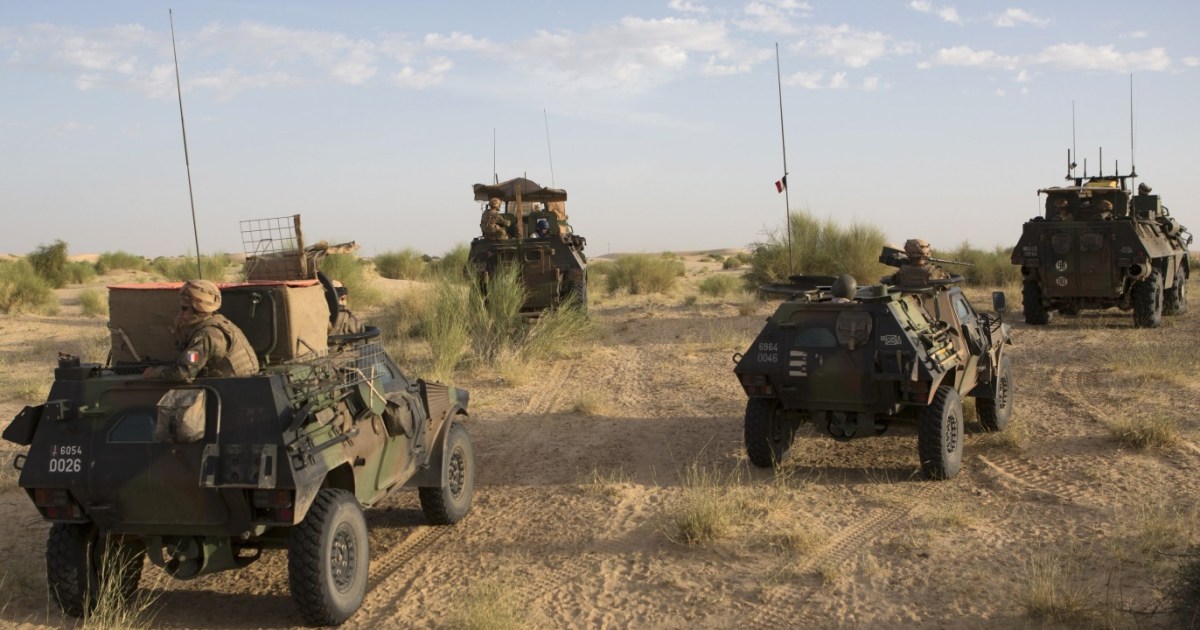A few days ago, French President Emmanuel Macron denounced the demonstrations hostile to the presence of his country in many countries of the Sahel, especially in Mali, where influential voices against the presence of Barkhane were being heard on social networks and in the streets.
The French newspaper La Croix said that Macron renewed his condemnation, which he expressed at the NATO summit, of the anti-French movements sometimes carried out by political officials in the Sahel countries.
He made it clear that he could not ask his soldiers to take the risk of fighting terrorism and preserving the security of these countries, and at the same time confronting public opinion in these same countries that believed some of the lies propagated about them.
Macron asked, "Do they want us there? Do they need us? I want clear answers that are validated by the action to these questions." The newspaper commented that these warning messages - whether those issued in NATO or issued last Saturday in Abidjan - are specifically addressed to the leaders of Mali and Burkina Faso. .
The newspaper warned that social media networks in these two countries in particular are full of conspiracy theories that hint at mysterious reasons behind France’s military operation in the region, and it does not seem successful.
The newspaper said that the enthusiasm that accompanied the launch of Operation Serval, which later turned into Barkhane, evaporated shortly after the warm reception of former French President Francois Hollande in Timbuktu, when he came to cooperate with the army of the Republic of Mali to stop the "jihadists" advancing towards the capital, Bamako.
Burning the flag of France
Seven years later - as the newspaper says - French soldiers are still in Mali, although "security has not improved, but rather has worsened more than before," as activist Salim Doubia said in the middle of this month when he was leading a march in the center of the country.
According to the newspaper, popular movements against the French intervention in Mali multiplied, and some of them were organized and orchestrated, as was the case in the demonstrations in mid-November in which the French flag was burned in Kati. But some of them were automatic, as happened on the 24th of the same month near Modibo Keita Airport in Bamako.
The newspaper said that Malian singer Salif Keita contributed to igniting these protests early last November, with a video, which was seen more than a million times, in which he said that "France sends people to kill Malians, and then contributes to spreading rumors that they are jihadists."
To achieve the goal of this recording - according to the newspaper - Salif Keita blames the 75-year-old Malian President Ibrahim Boubacar Keita, for his subordination to the young Emmanuel Macron.
Although the French embassy in Mali immediately described Salif Keita's comments as “baseless,” and “defamation and transgression of her right,” the Malian president did not deny them, but rather seemed to confirm their authenticity, especially when he said on November 28. Past in one of the financial media on the Internet that "the vast majority of our citizens have the same feeling as Salif Keita."
Minority feeling
On the other hand, the newspaper quoted former military Moussa Cinco Coulibaly, who became an opposition politician, that "this anti-French feeling exists only among a minority," adding that "the government today is in trouble, so it is in its interest to raise this feeling in order to forget," especially since the forces Malia has suffered heavy losses, with at least 150 soldiers killed in terrorist attacks, the newspaper says.
The newspaper concluded by warning of a Russian exploitation of anti-France in Mali, as Bamako signed a defense agreement with Moscow in June 2019, and in the streets of Bamako, Russia is now seen as an alternative to those frustrated by the French intervention.

